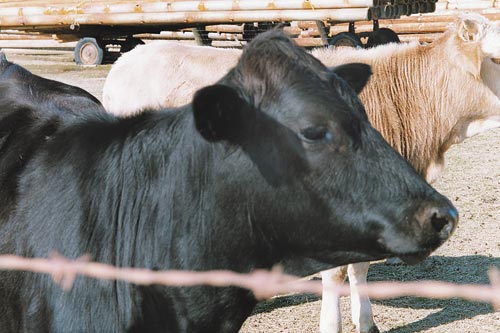February 14, 2011

During the National Cattlemen’s Beef Association’s membership meeting, NCBA members approved 2011 policy resolutions developed by cattlemen and women.
Several 2011 policy resolutions were approved including policy on immigration; food safety; marketing; cattle health; and federal lands. NCBA President Steve Foglesong said the policies established are driven by grassroots cattlemen and women.
“Our members chart the course for our organization and for the entire beef industry. This organization is producer-owned and member driven,” said Foglesong. “As it has been since 1898, our members decide our policy positions that are all geared toward sustaining this industry for future generations.”
NCBA members voted to establish policy on immigration reform in order to represent producers living along the border. The resolution calls for full authority for federal agencies as well as state and local authorities to secure the border, including the suspension of all pending legislation and funding for federal-land designations along the border. Federally-owned lands along the border with certain designations such as “wilderness areas” provide unfettered access for illegal cross-border activities by restricting the motorized access of federal agents responsible for patrolling the land.
Regarding cattle health, NCBA’s grassroots membership called for NCBA staff to urge the U.S. Department of Agriculture (USDA) and Congress to provide full funding for purposes of indemnification for brucellosis, tuberculosis, foot and mouth disease and emergency diseases.
Members strengthened their commitment to pre-harvest food safety interventions by supporting a multi-disciplinary approach to identify and develop interventions along the entire food chain to address key knowledge hurdles and develop targeted solutions. Along those lines, members voted to support research to determine the critical virulence factors of non O157 shiga toxin-producing E. coli associated with human illness. Additionally, NCBA continues to support collaborative food safety research to make beef an even safer product.
Eastern Livestock bankruptcy
NCBA members approved a resolution to address the bankruptcy of Eastern Livestock. The membership directed NCBA staff to work aggressively with members of Congress and appropriate federal agencies to immediately make funds available at low interest or no interest to assist producers and firms that were directly impacted.
NCBA sent letters to the USDA and the Small Business Administration in December regarding assistance to producers and firms financially impacted by the Eastern issue. To-date, USDA has not responded to the letter or offered financial assistance to producers.
According to Colin Woodall, NCBA vice-president of government affairs, NCBA members also directed his team in Washington to work with the relevant congressional committees to ask for a congressional oversight hearing into the USDA’s Grain Inspection, Packers and Stockyards Administration’s audits and bonding of all cattle auction markets and dealers.
Woodall said the current federal laws and regulations and the judiciary’s interpretation of the federal grazing permit administration have created a malfunctioning system that allows radical environmental groups to stymie on-the-ground management. He said many NCBA members depend on federal lands to graze their livestock and make a living for their families. Woodall said NCBA is committed to pushing for a common sense approach to the management of public lands.
“This is the bread and butter of our organization. This is truly where the magic happens so-to-speak,” Woodall said. “Our members take the time away from their operations and their families to travel here and debate important issues affecting the U.S. beef cattle industry. They then put it on paper. When we are fighting for U.S. cattlemen and women in Washington, D.C., we use these policy positions as our roadmap.”
Click here for convention photos.
You May Also Like




